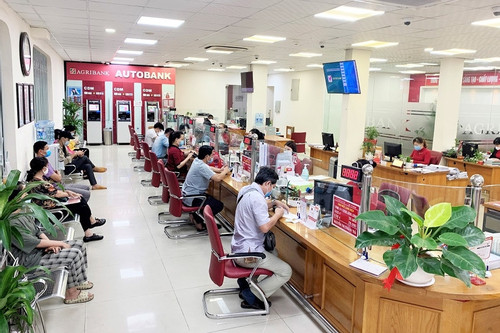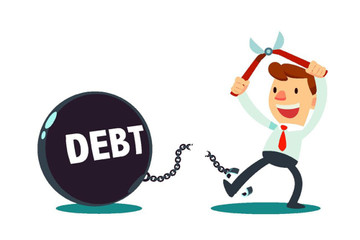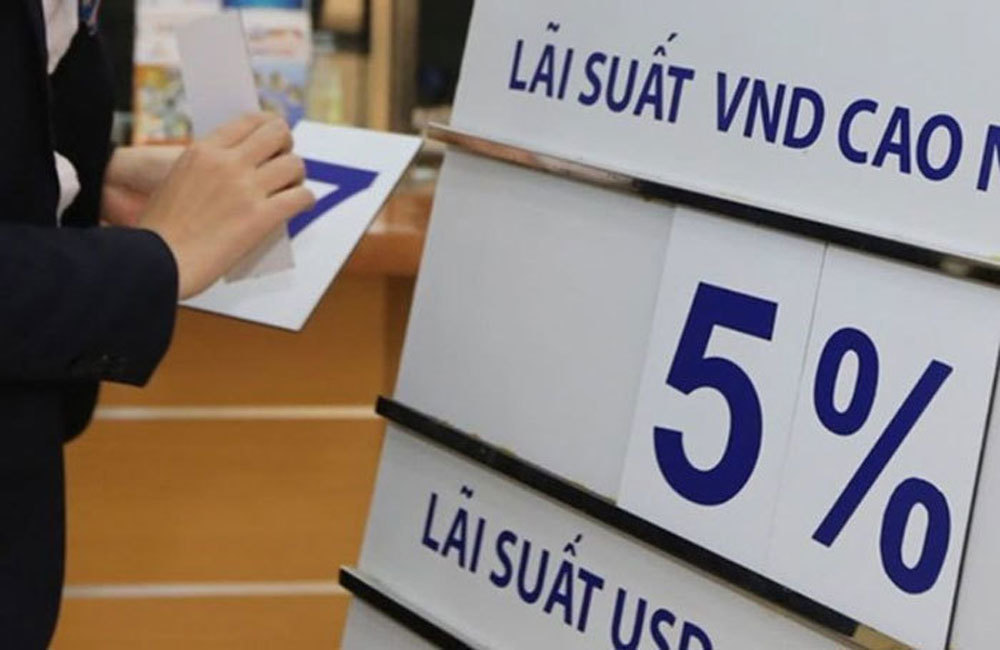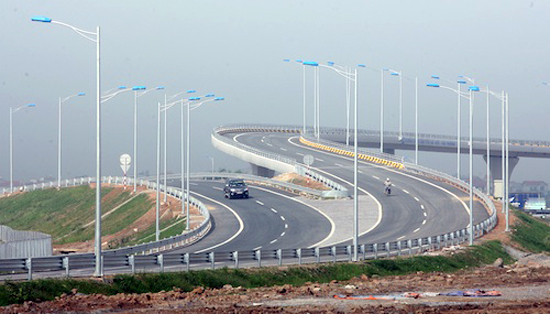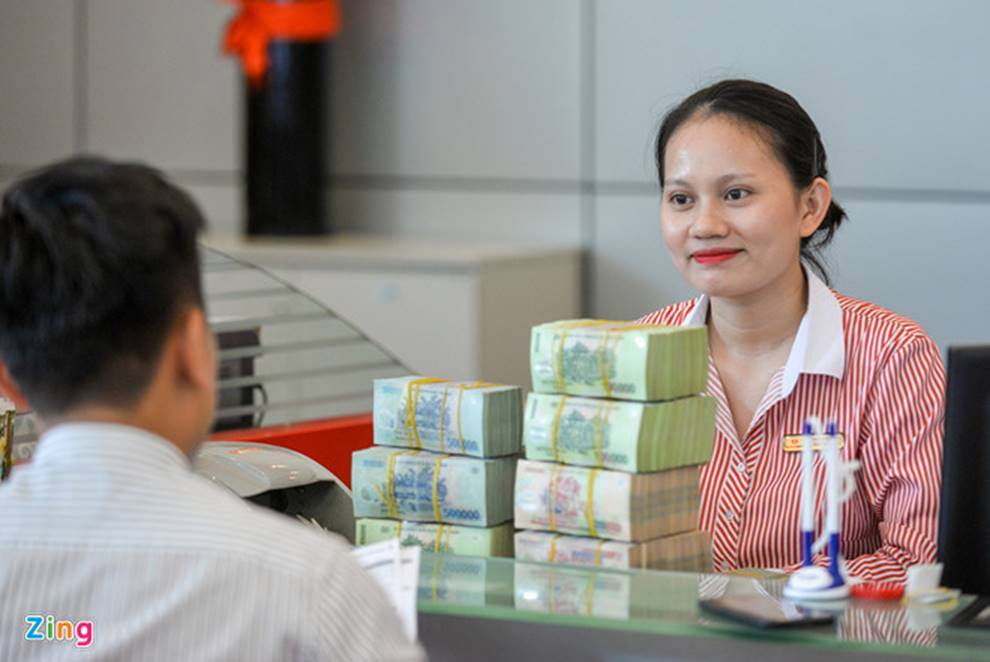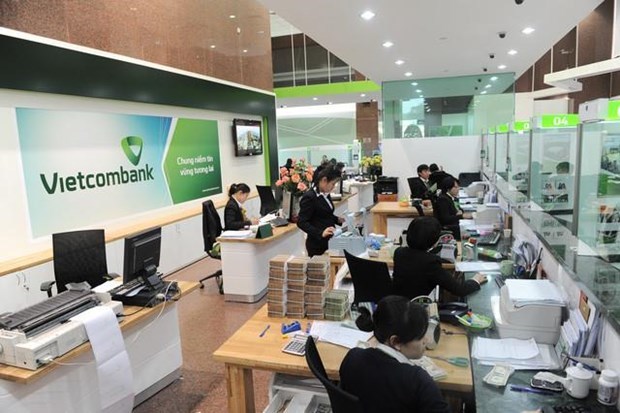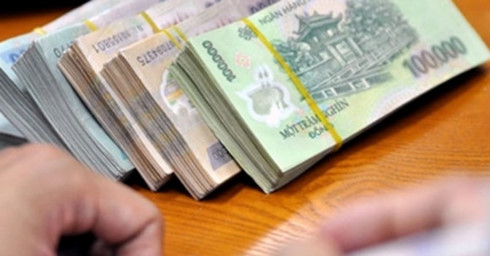- © Copyright of Vietnamnet Global.
- Tel: 024 3772 7988 Fax: (024) 37722734
- Email: evnn@vietnamnet.vn
bank loans
Update news bank loans
15 businesses, called 'cash kings', have $18 billion in coffers
Fifteen companies are reported having $18 billion in cash, and seven of them have more than $1 billion each.
Banks offer high-value debts for sale
Big banks are selling both high-value and low-value debts.
Businesses seek capital as banks run out of ‘credit quota’
Businesses in many fields have voiced their concerns about the lack of capital from banks.
Strict criterion prevents access to loans
Although Decree 31/2022/ND-CP of the State Government offers support to businesses, cooperatives, and business householders at 2 percent interest rate when borrowing from commercial banks, there is still a strict criterion in place.
Businesses nervous as interest rates escalate
Interest rates in the market in recent days have been unfavorable for businesses.
Businesses ask banks to ease interest rates as promised
Bank loan interest rates are becoming a heavy burden on businesses, which have been hit hard by Covid-19 for more than a year.
Deposit interest rates rising despite pandemic
After many months of staying at low levels, deposit interest rates at banks have increased since late May.
Unable to lend to businesses, banks offer consumer loans to individuals
Deposits at banks continue to increase, though deposit interest rates have been decreasing. With plentiful capital, banks are inviting individuals who want to borrow money to buy houses and cars.
Deposit rates hit new lows
Local banks have continued slashing deposit rates to as low as 2.5% per annum, in tandem with the Government’s principle of lowering lending rates to support borrowers.
SMEs want sharper interest rate cuts
Small and medium enterprises (SMEs) need capital to revive their production, but cannot access bank loans or receive support from local credit guarantee funds.
VN Public Security Ministry warns about online lending apps
The Ministry of Public Security has warned about the risk of black credit provided by online lending applications which could threaten social security.
Funding of BOT projects in Vietnam carries risks
 The warning about risks of funding BOT (build-operate-transfer) projects given two years ago is becoming a reality.
The warning about risks of funding BOT (build-operate-transfer) projects given two years ago is becoming a reality.
Thousands of bank officers lose jobs as ebanking grows
 More than 2,320 bank officers have lost jobs at VP Bank, and the figure is 1,248 at OCB. The two banks had the highest number of officers losing jobs this year.
More than 2,320 bank officers have lost jobs at VP Bank, and the figure is 1,248 at OCB. The two banks had the highest number of officers losing jobs this year.
Bank loans to BOT, BT infrastructure projects in Vietnam worth $4.72 billion
 Bank loans for build-operate-transfer (BOT) and build-transfer (BT) infrastructure projects by the end of September this year reached nearly VND110 trillion (US$4.72 billion), up 1.85 per cent against the end of 2018.
Bank loans for build-operate-transfer (BOT) and build-transfer (BT) infrastructure projects by the end of September this year reached nearly VND110 trillion (US$4.72 billion), up 1.85 per cent against the end of 2018.
Credit slowdown causes concern about access to bank loans
 Vietnam’s credit growth is slowing and can fall behind the central bank’s target of 14 percent for 2019, causing concerns that it could make it difficult for businesses to access bank loans during the remaining months of the year.
Vietnam’s credit growth is slowing and can fall behind the central bank’s target of 14 percent for 2019, causing concerns that it could make it difficult for businesses to access bank loans during the remaining months of the year.
VN banks told to be careful with corporate bonds
 Commercial banks’ purchase of real estate corporate bonds is considered indirect lending to real estate firms, experts say.
Commercial banks’ purchase of real estate corporate bonds is considered indirect lending to real estate firms, experts say.
Taxes, loan interest rates burden VN enterprises
 While the EVFTA and CPTPP have paved the way for Vietnamese enterprises to penetrate the world market, high taxes and interest rates have blocked their path.
While the EVFTA and CPTPP have paved the way for Vietnamese enterprises to penetrate the world market, high taxes and interest rates have blocked their path.
What's behind real estate firms’ race to issue corporate bonds?
 Real estate firms are rushing to issue corporate bonds, which analysts say shows their thirst for capital. But there are risks.
Real estate firms are rushing to issue corporate bonds, which analysts say shows their thirst for capital. But there are risks.
Real estate firms switch to bonds due to less bank loans
 Bond issuance is becoming an ideal channel for real estate firms to raise capital as credit policies for property development are gradually being tightened, experts said.
Bond issuance is becoming an ideal channel for real estate firms to raise capital as credit policies for property development are gradually being tightened, experts said.
Corporate bond issuance market sees significant changes
Big changes can be seen in the corporate bond market, from issuers and issuance strategies to buyers.
